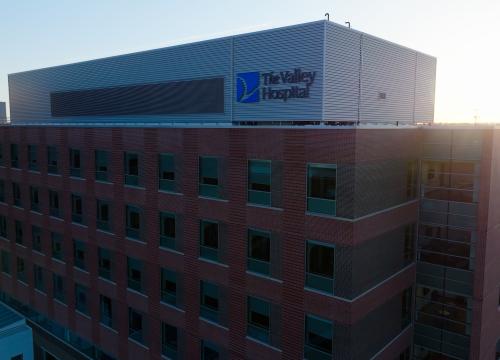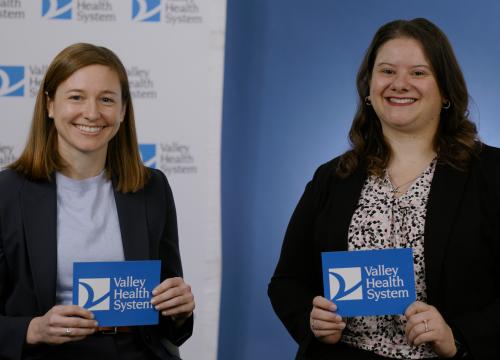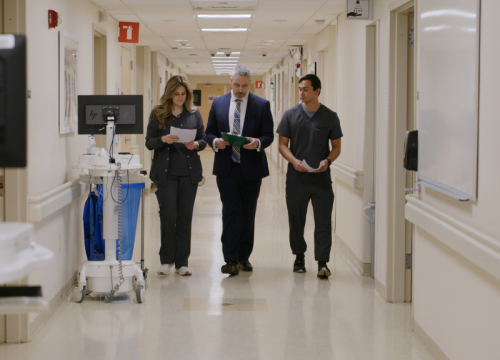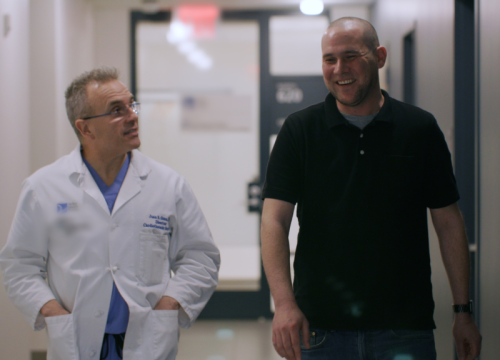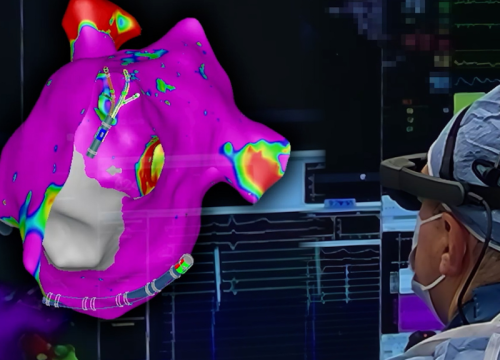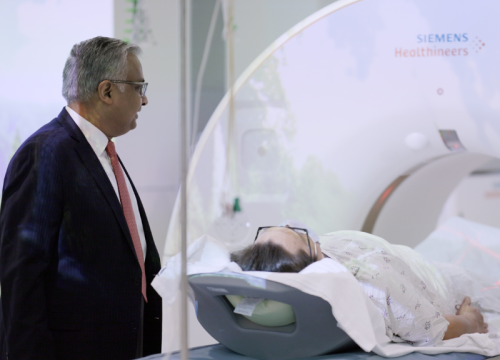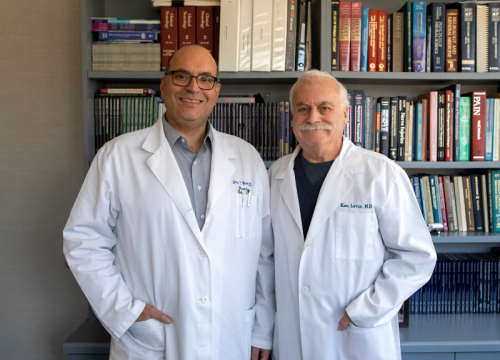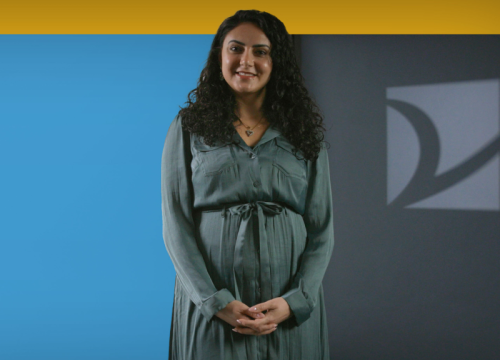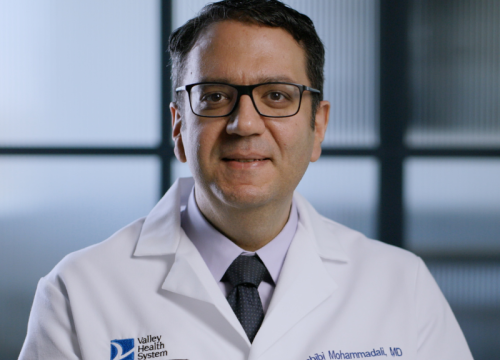The Valley Hospital Center for Barrett's Esophagus and GERD provides leading-edge diagnostic, treatment and management services for patients with Barrett's esophagus and GERD.
Barrett's esophagus is a serious complication of chronic, severe gastroesophageal reflux disease (GERD), also called acid reflux. A major risk factor for esophageal cancer, Barrett's esophagus is marked by abnormal cells that line the esophagus - a result of stomach acid that backs up into the esophagus.
Our center's gastroenterologists and thoracic surgeons are highly skilled and experienced in using the most advanced minimally invasive procedures and technologies to treat patients with GERD and Barrett's esophagus, so these conditions don't lead to esophageal cancer.
Barrett's Esophagus and GERD Services
The Center for Barrett's Esophagus and GERD offers a full spectrum of services to diagnose, treat and manage both acid reflux and Barrett's esophagus:
Diagnostic Services
Our gastroenterologists perform endoscopic examinations of the esophagus. While patients are sedated, the gastroenterologist will place a thin, fiberoptic flexible scope that contains a tiny camera down their throat and into the esophagus. They'll be able to view the esophagus using the endoscope. If the lining of the esophagus is red instead of light pink, Barrett's esophagus may be present.
To confirm the diagnosis, the gastroenterologist will remove several samples of abnormal tissue during the endoscopy using special instruments. These samples will be examined under a microscope by a Valley pathologist to check for abnormal cellular changes, which would indicate Barrett's esophagus, or dysplasia, if the condition has advanced.
Treatments
Treating reflux doesn't cause Barrett's esophagus to go away, so therapies are aimed at both the acid reflux and the abnormal esophageal lining. Our treatment options include:
- Medications - Medications reduce exposing the esophagus to acid, thereby eliminating or reducing symptoms of heartburn and regurgitation. However, no scientific evidence suggests that taking these medications will prevent the development of esophageal dysplasia or cancer.
- Lifestyle changes - Acid reflux can be avoided by adopting healthy lifestyle changes, including: not eating within three hours of bedtime; not smoking or using tobacco products; eating smaller meals; elevating the head of your bed or mattress to help keep acid in the stomach when sleeping; and more.
- Fundoplication surgery - This procedure strengthens the lower esophageal sphincter and prevents acid reflux. The center's thoracic surgeons perform this minimally invasive laparoscopic procedure through several small keyhole incisions in the abdomen. Fundoplication requires only a one-night stay in the hospital. Long-term medication to control GERD is usually not needed after fundoplication.
- Radiofrequency ablation (RFA) - This procedure destroys the abnormal esophageal lining in Barrett's esophagus with heat energy. The center's gastroenterologists are experienced in using the advanced HALO 360 system to remove the abnormal lining. RFA is effective in eliminating the abnormal esophageal lining in 85 percent of patients, with minimal side effects.
- Endoscopic mucosal resection - If, during an endoscopy, the gastroenterologist notices a nodule within the Barrett's esophagus, they will remove it using this technique. Using special instruments, the physician suctions the nodule and then removes it. A pathologist will examine the nodule to determine if cancer is present.
- Surgical treatment of esophageal cancer - If cancerous cells or high-grade dysplasia is found within the Barrett's esophagus, the physician will most likely recommend removing the lower portion of the esophagus in a procedure called an esophagectomy. This procedure can be performed in both minimally invasive and "open" methods - our thoracic surgeons are skilled in both types of procedures and advise patients on the most appropriate type for them.
Management Services
Patients who are diagnosed with Barrett's Esophagus will need to be monitored regularly with endoscopies and biopsies according to a schedule set by their gastroenterologist. If dysplasia is present, follow-up exams must also be performed.



